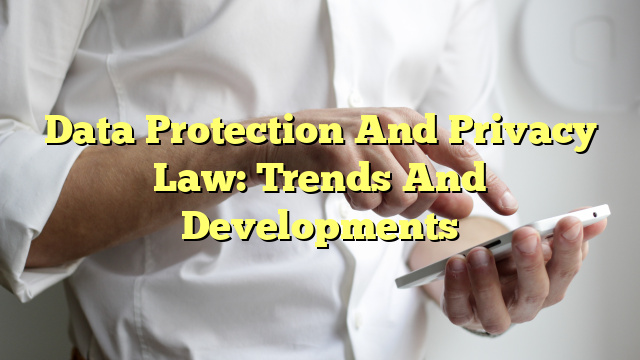Table of Contents
- Trends for GDPR 2023
- Most Recent Changes to Data Protection Legislation
- New Law that Protects Data Privacy
- Changes Made to the Data Protection Act
- Privacy and Data in 2023
- Most Protective Data Privacy Law in the United States
Trends for GDPR 2023
The European Union’s General Data Protection Regulation (GDPR) has made a significant impact on data protection and privacy law since it was enacted in 2018. By 2023, the GDPR will have been in effect for five years, and the trends for the regulation are already taking shape. It is likely that the GDPR will become even more stringent in its requirements as time goes on and technology advances.
The GDPR requires companies to provide consumers with greater control over their personal data. Companies must be transparent about how they use and process personal data and provide consumers with access to the data they have collected. Companies must also notify customers when personal data has been breached and provide notifications when changes to data protection policies have been made. These requirements will likely become even more stringent in the future, as the GDPR is updated with new technologies.
The GDPR also requires companies to take steps to protect consumers’ data from unauthorized access and use. This includes implementing measures to ensure the security of data and preventing data breaches. Companies must also make sure that data is only used for the purposes for which it was collected. Companies will likely be required to take additional steps to protect data in the future as technology advances.
The GDPR also obligates companies to provide customers with the ability to exercise their rights. This includes the right to access, rectify, delete, or transfer their personal data. Consumers must also be able to opt-out of the processing of their data for marketing purposes. Companies will need to ensure that these rights are easily exercised in the future and that consumers are fully aware of their rights.
Most Recent Changes to Data Protection Legislation
In 2020, the European Union adopted the Electronic Communications Code (ECC), which replaced the previous e-privacy Directive. The ECC applies to providers of electronic communications services, such as internet service providers, and requires them to take steps to protect the privacy of their customers. This includes implementing measures to ensure the security of data and preventing data breaches. It also requires providers to provide customers with the ability to exercise their rights, such as the right to access, rectify, delete, or transfer their personal data.
The European Union also adopted the General Data Protection Regulation (GDPR) in 2018, which provides a comprehensive framework for the protection of personal data. The GDPR is intended to harmonize data protection laws across Europe and give consumers greater control over their personal data. It requires companies to be transparent about how they use and process personal data and provides consumers with the right to access, rectify, delete, or transfer their personal data.
New Law That Protects Data Privacy
In 2020, the United States adopted the California Consumer Privacy Act (CCPA), which is the first comprehensive data privacy law in the United States. The CCPA provides consumers with the right to access, delete, and opt-out of the sale of their personal data. It also requires companies to be transparent about how they use and process personal data and provides consumers with the ability to sue companies for violations of the law. The CCPA is expected to be the first of many data privacy laws in the United States.
Changes Made to the Data Protection Act
In 2018, the United Kingdom adopted the Data Protection Act 2018, which replaced the previous Data Protection Act 1998. The new act provides a comprehensive framework for the protection of personal data and is intended to harmonize data protection laws across the United Kingdom. It requires companies to be transparent about how they use and process personal data and provides consumers with the right to access, rectify, delete, or transfer their personal data. The act also requires companies to take steps


Fascinating insights on Data Protection and Privacy Law! Global issues demand global solutions, and this seems like a step in the right direction.
With data protection and privacy law quickly changing, it’s important to stay abreast of the emerging trends and developments in the field. This article provides valuable insight.